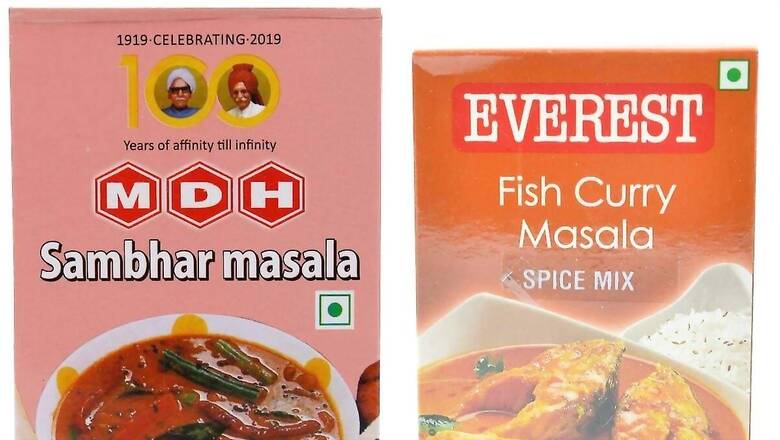
views
The US customs, in the past six months, have refused a staggering 31% of all spice-related shipments exported by Mahashian Di Hatti (MDH) Pvt Ltd due to salmonella contamination, The Indian Express reported on Monday, stating that this refusal rate is double from the previous year’s 15%.
The trend coincides with Singapore and Hong Kong’s suspension of sales for certain items of MDH and Everest Food Products Pvt Ltd. Allegations of detecting a carcinogenic pesticide in spice mixes have prompted these suspensions, raising health concerns among millions of Indian consumers.
Since October last year, a total of 11 shipments, comprising nearly one-third of all MDH shipments under the “spices, flavours, and salts” category have been rejected by US customs. Data obtained by The Express from the US FDA reveals that all MDH export shipments refused since October 2020 were due to salmonella contamination, which results from inadequate hygiene practices throughout the value chain.
Everest, in contrast, has seen a lower refusal rate, with only 0.3% of export shipments rejected in the current US federal fiscal year. However, the company has faced challenges primarily related to labelling violations. Between the US fiscal years 2021 and 2023, approximately 10% of all refused human food shipments from India belonged to the “spices, flavours, and salts” category, according to the report. This places spices as the second most refused category, following “miscellaneous food-related items.”
After the sales suspension in Hong Kong and Singapore, the Food Safety and Standards Authority of India (FSSAI), earlier this month, initiated nationwide quality checks for various brands of powdered spices. Hong Kong suspended sales of three MDH spice blends and an Everest spice mix, while Singapore ordered a recall of the Everest spice mix due to high levels of ethylene oxide, posing health risks with long-term exposure.
It was earlier reported that out of 3,925 human food export shipments from India refused entry at US customs between US fiscal years 2020 and 2023, 24% were refused for being “filthy,” and 20% were refused for containing salmonella. Despite this, India’s food export refusal rate, as per the report, remained relatively low at 0.15%, outperforming rates from China and Mexico.
Check Lok Sabha Election 2024 Phase 3 Schedule, Key Candidates And Constituencies At News18 Website.




















Comments
0 comment